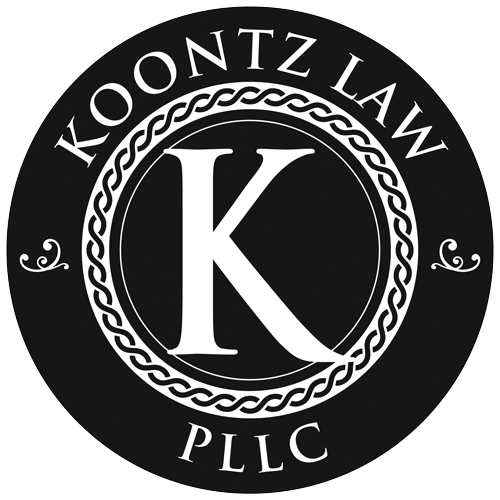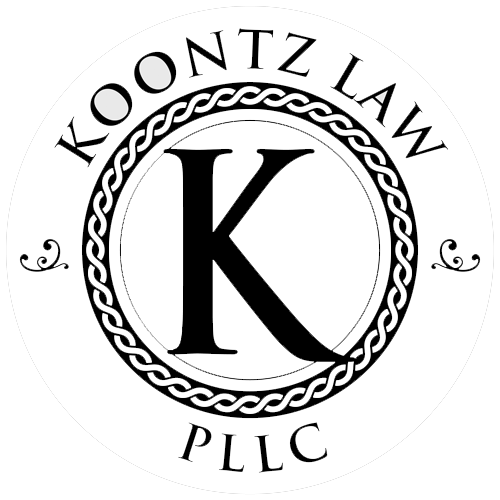Agreements
Divorce Agreements Lawyer in the Piedmont Triad Area
Trusted Attorney to Handle Any Agreements Paperwork
During the divorce process, both parties will typically need to complete many types of significant paperwork. Fortunately, at Koontz Law, Attorney Koontz is here to help you navigate any agreements required.
Great, professional company that handled my divorce in a timely manner.
Types of Agreements
Each type of agreement Koontz Law can help with is outlined below:
Separation Agreements and Property Settlement Agreements
A separation agreement is a contract pursuant to which spouses agree to live separate and apart. Separation agreements can be executed at any time during separation but are not required. Property settlement agreements similarly provide for a division of the real estate, personal property, financial accounts and martial debts. Most often, separation and property settlement are addressed in the same agreement.
A few things to note about both types of agreements include:
Pre and Post Nuptial Agreements
A prenuptial or postnuptial agreement is a contract between two people contemplating marriage; whereas, a postnuptial agreement is a contract between tow people who are already married. In order to be a valid agreement, the contract must:
The parties can contract concerning property rights, rights to control and manage property, disposition of property upon separation or divorce, spousal support rights upon separation or divorce, ownership and disposition of life insurance benefits, and any other personal rights and obligations which are not in violation of public policy or the law.
When Does a Divorce Agreement Become Binding?
A divorce agreement becomes binding once it is written, signed by both parties, and notarized. After signing, the agreement is submitted to the court for approval, where a judge reviews it to ensure fairness and compliance with legal standards. Once the court approves and validates the agreement, it becomes legally enforceable. This process ensures that both parties are held accountable to the terms agreed upon, providing a clear and enforceable resolution to the divorce proceedings.
The Importance of Detailed and Fair Divorce Agreements
Detailed and fair divorce agreements are essential to ensure that both parties have a clear understanding of their rights and obligations, reducing the potential for future conflicts. These agreements help protect your assets, financial stability, and personal rights by outlining specific terms for property division, spousal support, and child custody. By working with an experienced attorney, you can ensure that the agreement is comprehensive and equitable, providing a solid foundation for moving forward. A well-crafted divorce agreement promotes a smoother transition and minimizes stress during a difficult time.
Contact Koontz for Help With Legal Agreements
At Koontz Law, we are dedicated to excellence. Attorney Koontz brings her passion for law and helping her community, her experience working with clients going through the divorce process, and her knowledge of both state and federal processes to the table during all of her legal services. To schedule a consultation concerning legal agreements, contact Koontz Law.
Contact Us Today
To contact us for a consultation, call us at (336) 751-6235 or click the button below to contact us online.
Our Family/Domestic Law Services
About Our Practice
Here's What Makes Us Different
Committed to Excellence in Client Service
Dedicated To Serving the Community
Experienced in Solving Problems Using Creative Solutions
Willing To Go Above and Beyond for You
See What Our Satisfied Clients Have To Say
“Mrs. Koontz has assisted our family with several business related matters and we have been nothing but pleased and impressed. She is knowledgeable, kind, and straight forward. We would highly recommend her office.”
John C.
“Needed legal advise and as soon as I called I felt that I would be well taken care of. Very professional, personable, and supportive. I got the answers I needed quickly and will definitely be my go to in the future!”
Christopher B.
“Mrs. Koontz was absolutely amazing. When she is going up to bat for you she is a force to be reckoned with and I am sure glad she was on my side. You could not pick a better person to represent you.”
Gabriel F.
“Our family received courteous, realistic and professional advice from Ms. Koontz. We look forward to working with Ms. Koontz and the kind ladies in her office for all of our future needs.”
Becky P.
Learn More by Reading Our Blog




